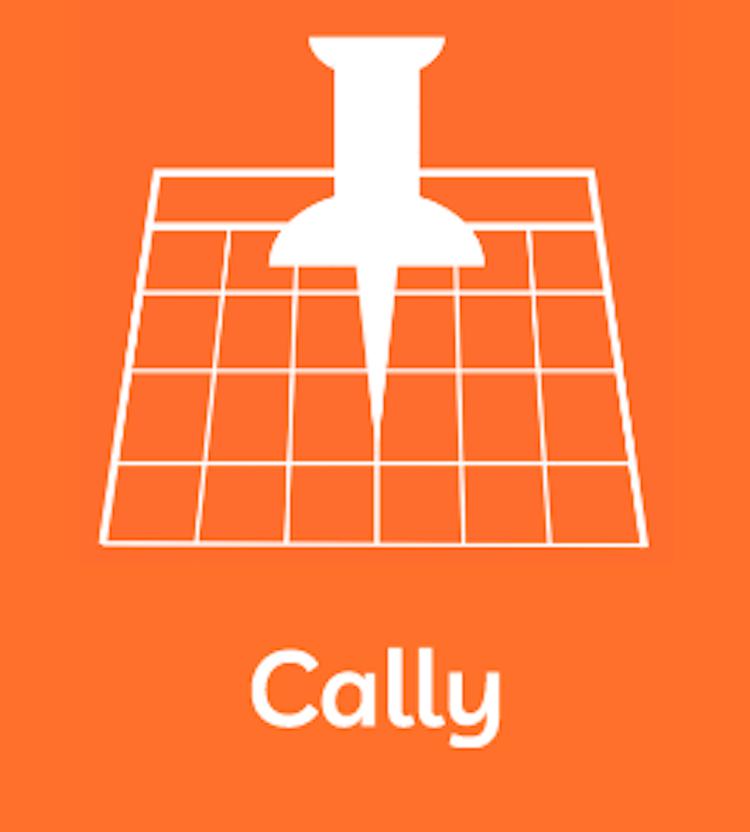
Cally
App Design
February 2023 - April 2023
App design, Information Architecture, User Research, Wireframes and Prototyping
Background
Cally is an event finder application designed as a class project specifically for University of Florida students. As a UF student, I observed that many students often complained about the lack of activities in Gainesville. Many were seeking a sense of community and looking for events to attend but struggled to find information. Recognizing this need, I saw an opportunity to create an application that could benefit the Gainesville community by providing a centralized platform for event discovery.
Problem
Many individuals have expressed frustration over the difficulty of discovering local events in Gainesville. Information about these events is not easily accessible unless one knows exactly what to search for or follows the right sources. As a result, many people are left feeling out of the loop.
Goals
To address this issue, we propose developing an app that consolidates popular Gainesville-based events into a single platform, creating a central hub of easily accessible information about local happenings.
Research
To gather information I decided to interview local UF students to identify their needs when designing this application
I began with general questions to build rapport and gather insights on social media use and weekend activities. Then, I focused on how participants find and choose local events, including their search methods and preferences. I explored their event attendance habits, motivations, and potential barriers, such as distance or cost.
Finally, I presented the app's goals and asked if the interviewees saw value in it for themselves and the Gainesville community. Transparency throughout the process ensured in-depth and honest insights. Overall, the interviews were successful and provided valuable information.
Interview Analysis
Interviews revealed that participants, classified as "adventure seekers," are eager to explore Gainesville and attend spontaneous events with friends. They rely heavily on Instagram for event information but face issues with missing posts due to niche accounts and infrequent updates. One interviewee noted, "It is easy to miss important information about upcoming events when scrolling through your feed. If you're not paying attention, you'll miss out."
Participants also use Google and Facebook, but find these platforms inefficient for discovering local events. As one participant mentioned, "In order to look up local events on Google, you need to already know that it's occurring." Facebook is underused by Gen Z, leading to a communication gap between advertisers and potential attendees.
The lack of centralized event information contributes to difficulties in finding activities. Participants value being active with friends and are willing to adjust their schedules around events. They expressed a strong interest in an app that consolidates event information. Suggestions included a matchmaking feature for events similar to Tinder, genre-based event discovery, and interactive forums for user feedback.
These insights highlight the need for an app that addresses current information gaps and aligns with user preferences for event discovery.
Target Audience
The app is aimed at sociable adults aged 18-24 living in Gainesville. These tech-savvy individuals are adventure-seekers who enjoy discovering new events and spending time with friends. While the app can benefit users of all ages, this demographic is most likely to adopt new technology and make the most of the app's features, aligning with the large student population in this college town.
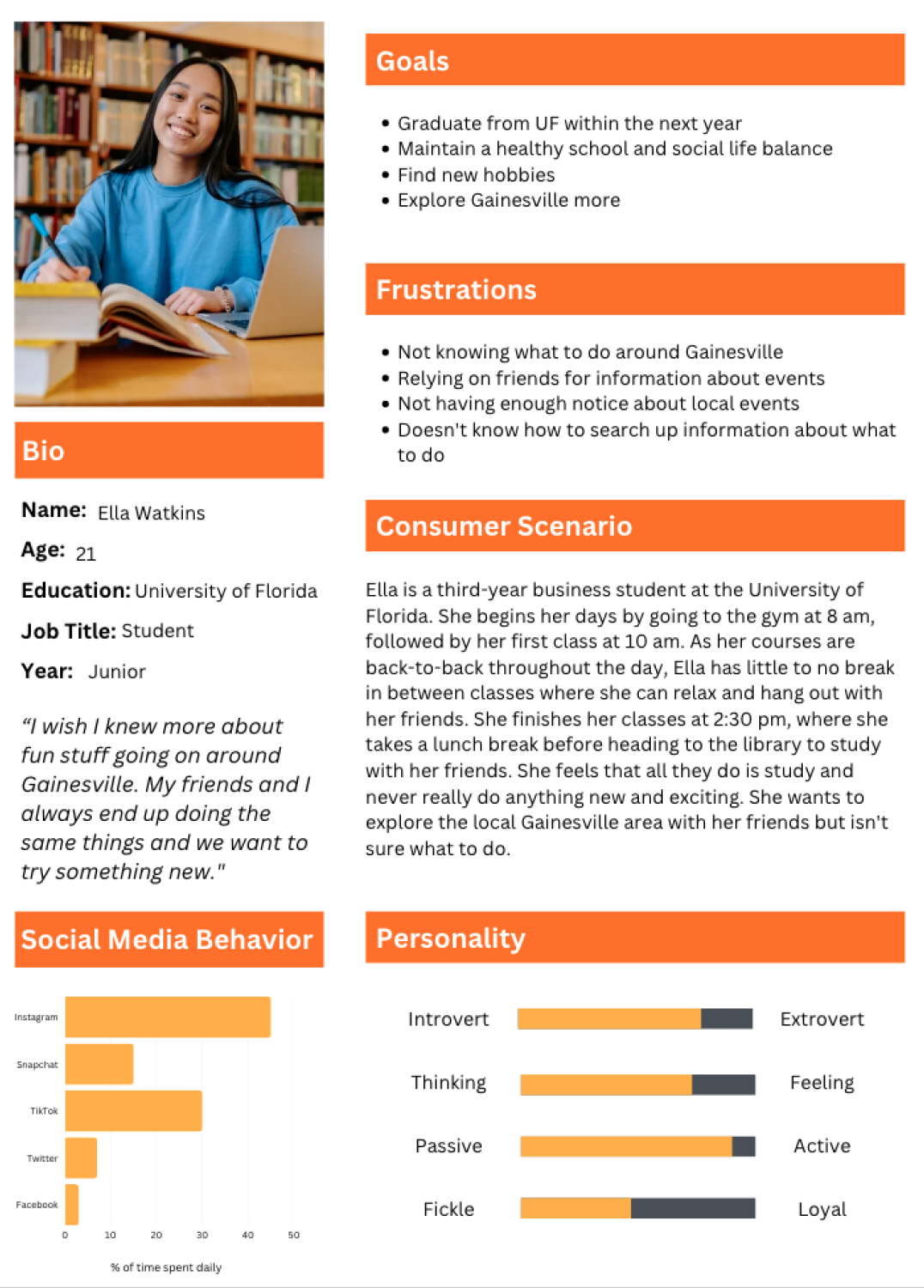
With a clear understanding of user preferences, I consolidated their feedback to define the design requirements for the app and began creating wireframes
Design Requirements
- Display events happening in the Gainesville area.
- List events by date and include filtering options based on user preferences.
- Design the event home page as an "explore" page for easy navigation.
- Provide detailed information for individual events.
- Include a search function to find specific events.
- Implement a calendar page to give users a visual representation of their interests and planned events.
For the color scheme of the application, I aimed for a vibrant and engaging color to reflect the excitement users would feel when discovering activities. I chose orange, as it embodies enthusiasm and warmth, aligning with the app's goal to energize and inspire users.
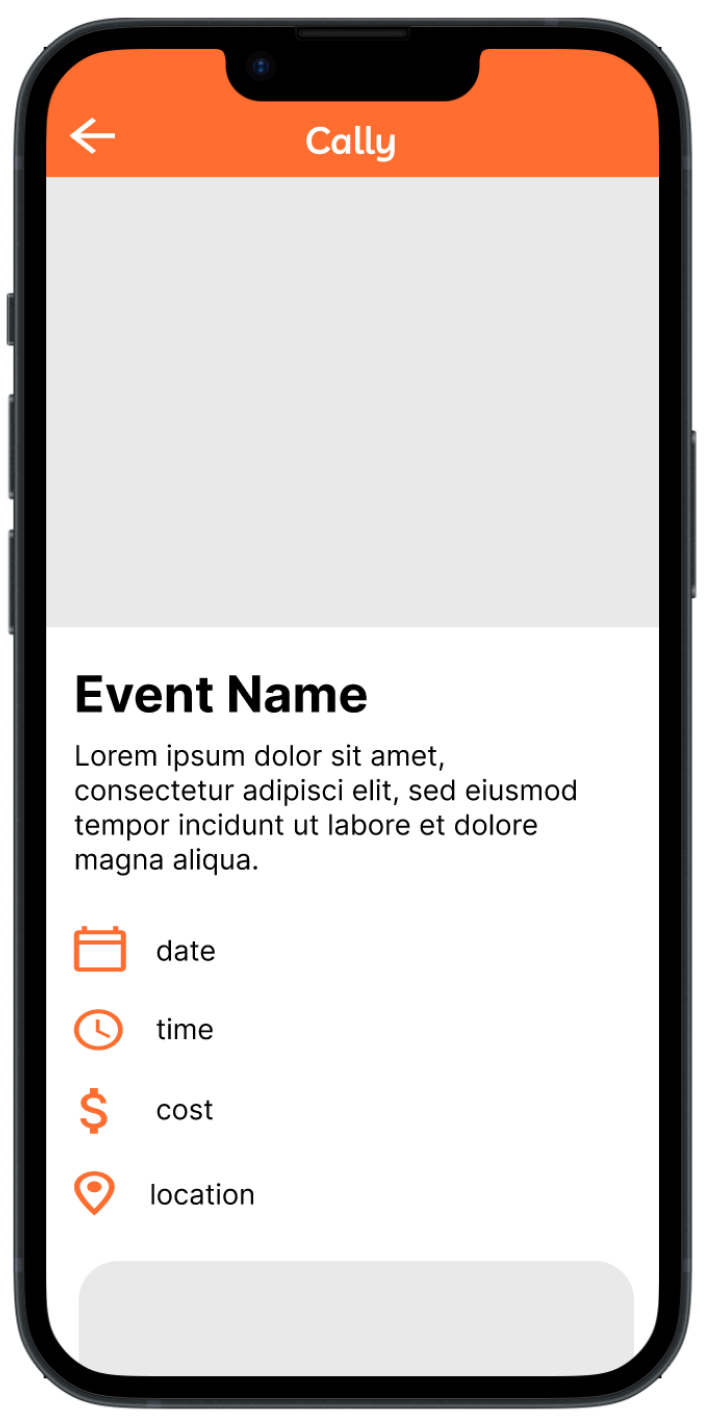
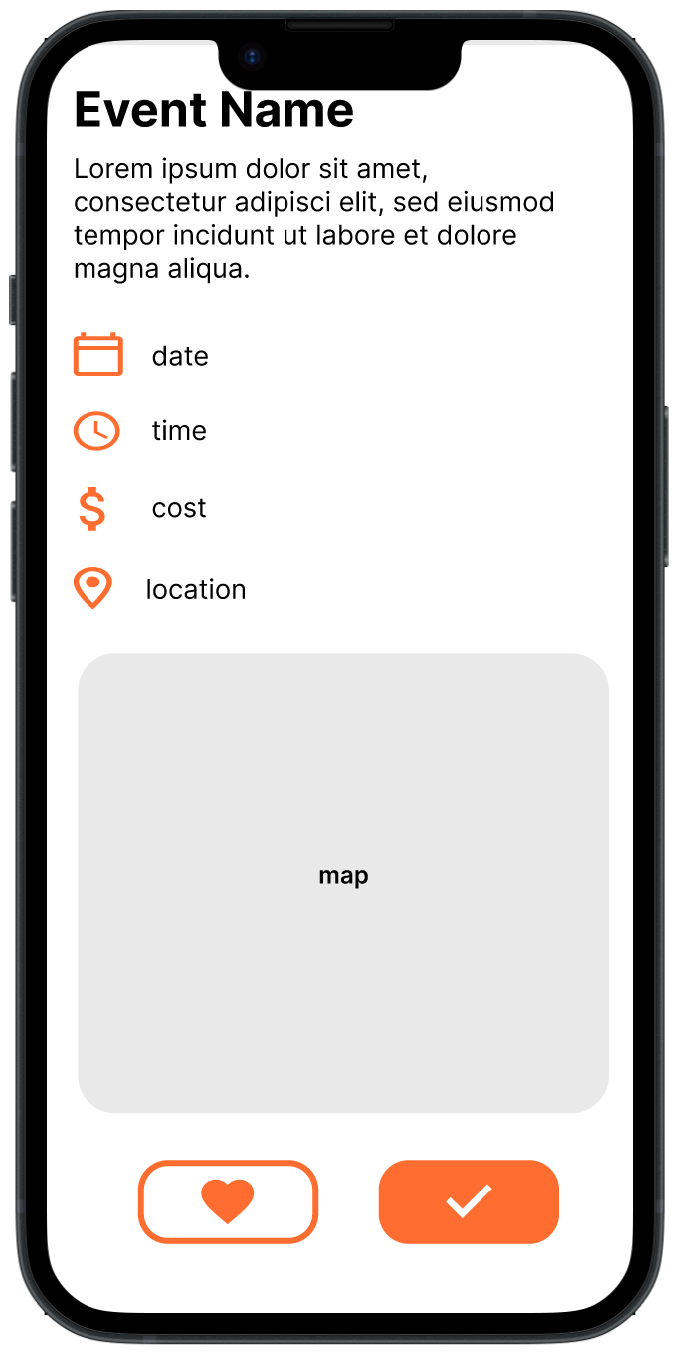
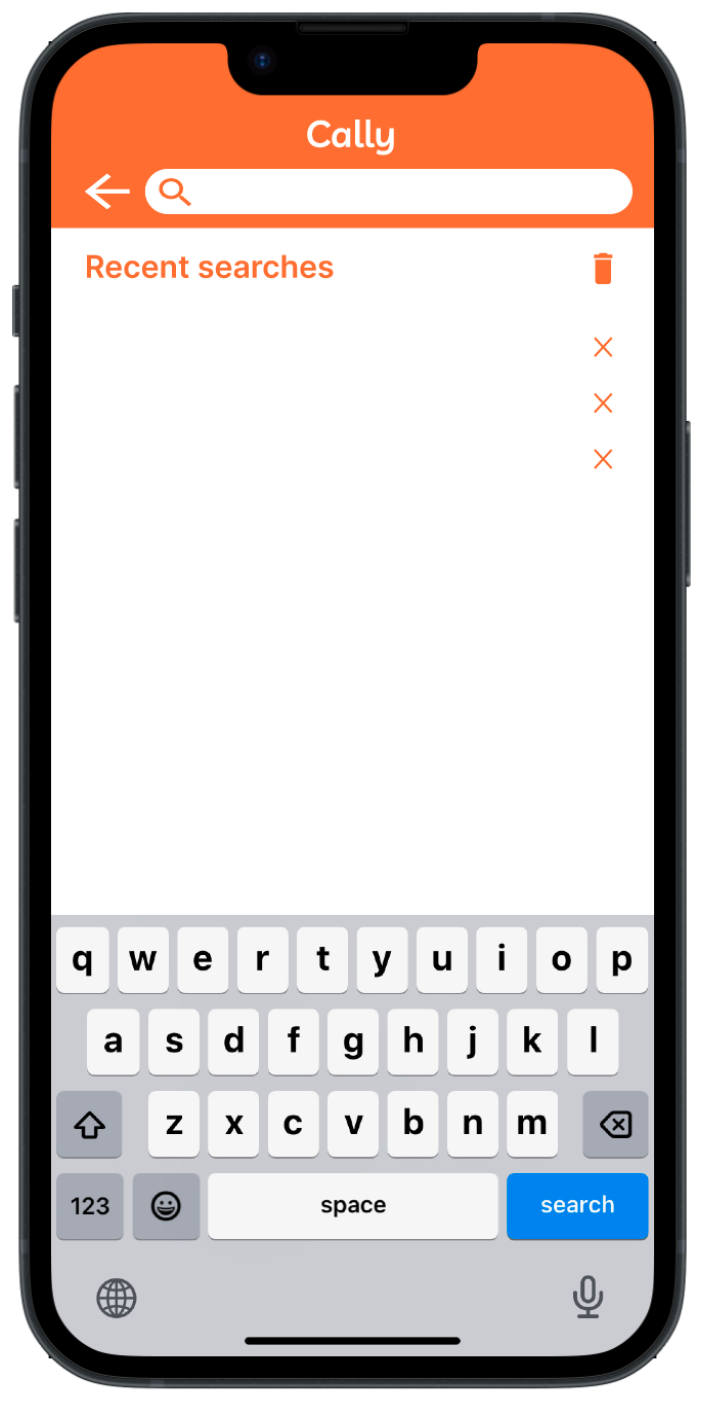
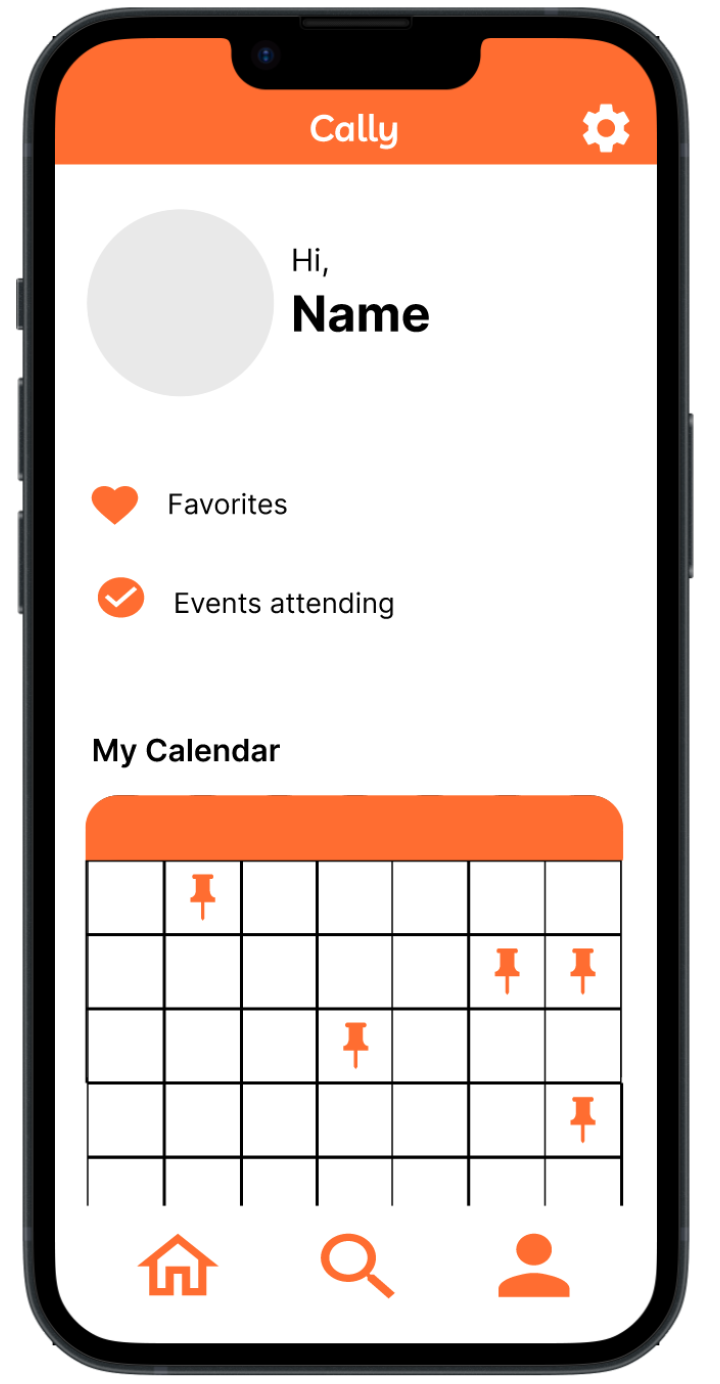
To enhance user experience, we incorporated CASA (Computers Are Social Actors) principles and Media Richness Theory into Cally. CASA principles, such as reciprocity, suggest users are more likely to share personal data if they receive benefits in return. Cally uses this principle by requesting users' location to provide accurate event information and directions. Users can choose their sharing frequency via a pop-up, balancing privacy with enhanced app functionality.
Media Richness Theory emphasizes tailoring communication to the medium. In Cally, we use personalized, casual language to create a welcoming atmosphere, such as greeting users with "Hi, user’s name." The app features a variety of media, including images and text, to offer a rich, engaging experience. This approach reduces ambiguity and fosters user comfort.
Additionally, Cally’s search functionality is streamlined with a single-line text field and a dropdown for past searches, simplifying the search process. A clear icon allows users to manage their search history effortlessly, enhancing overall usability.
Final Product
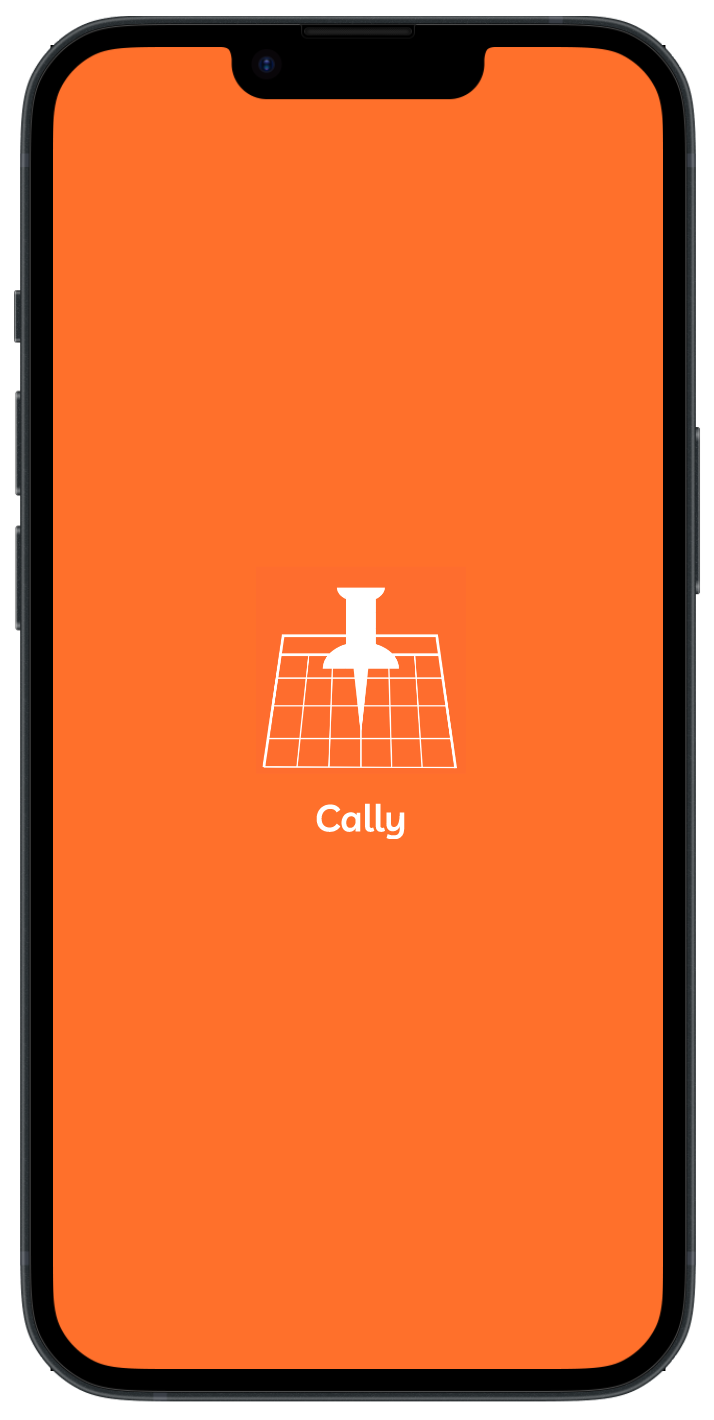
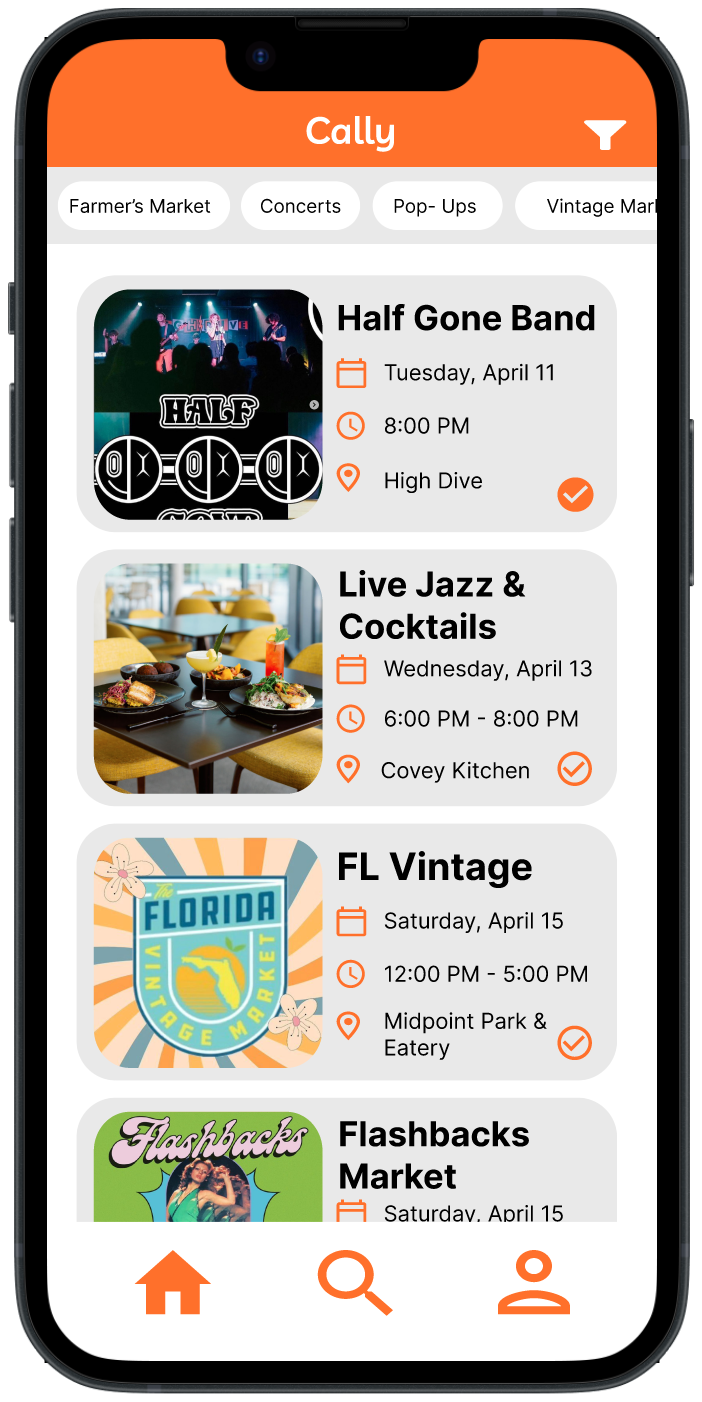

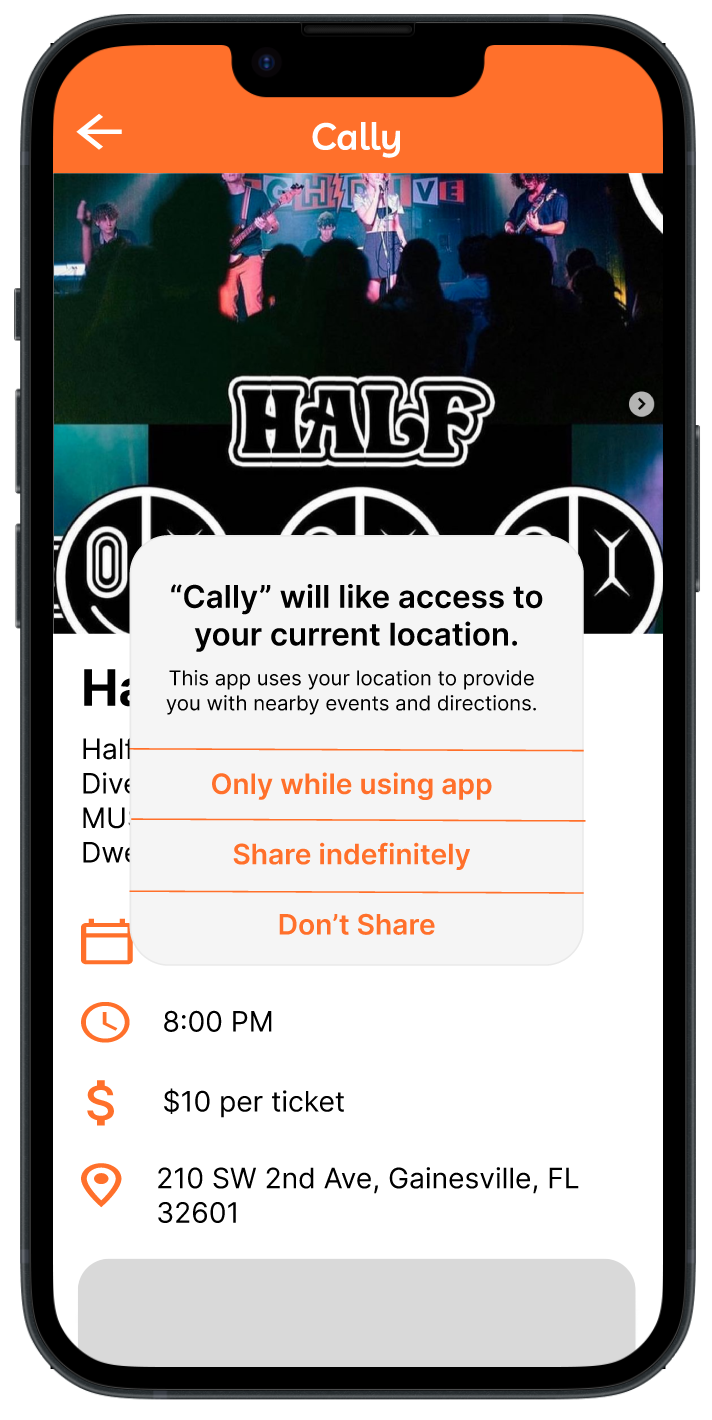
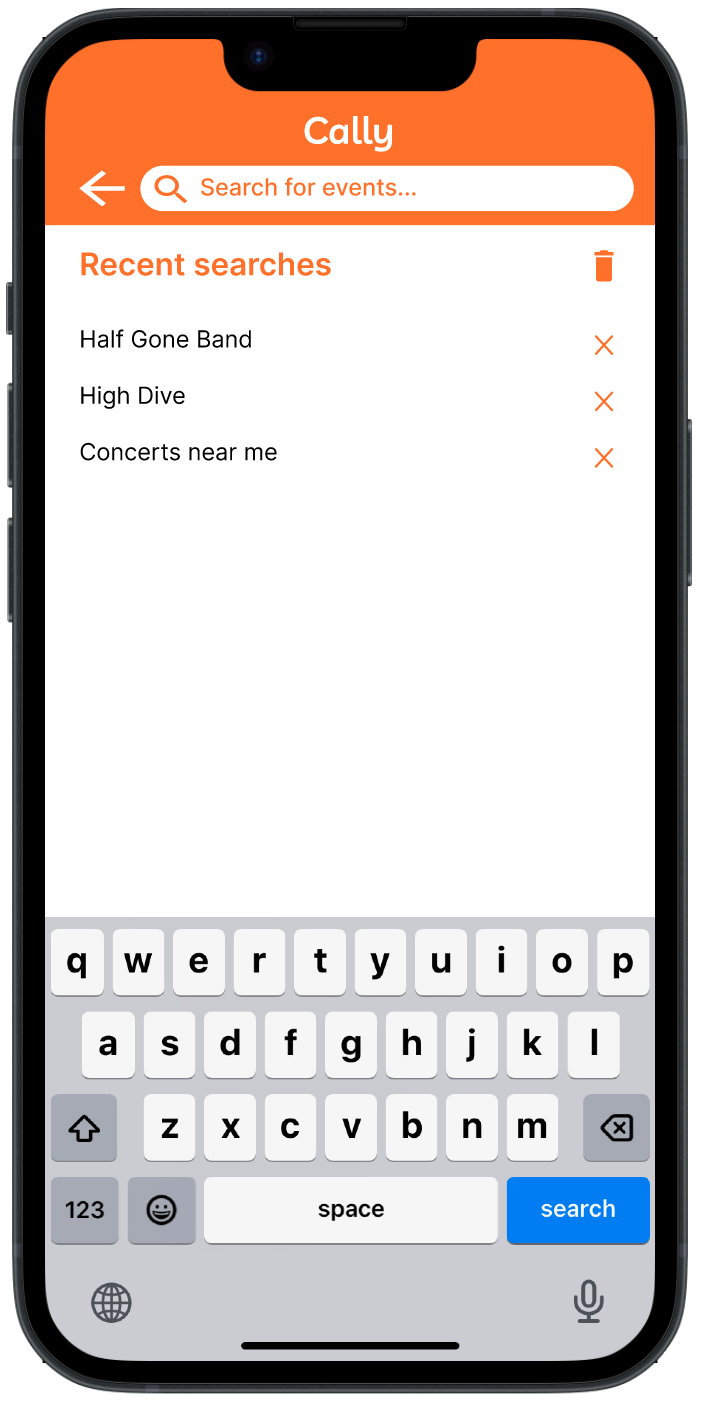
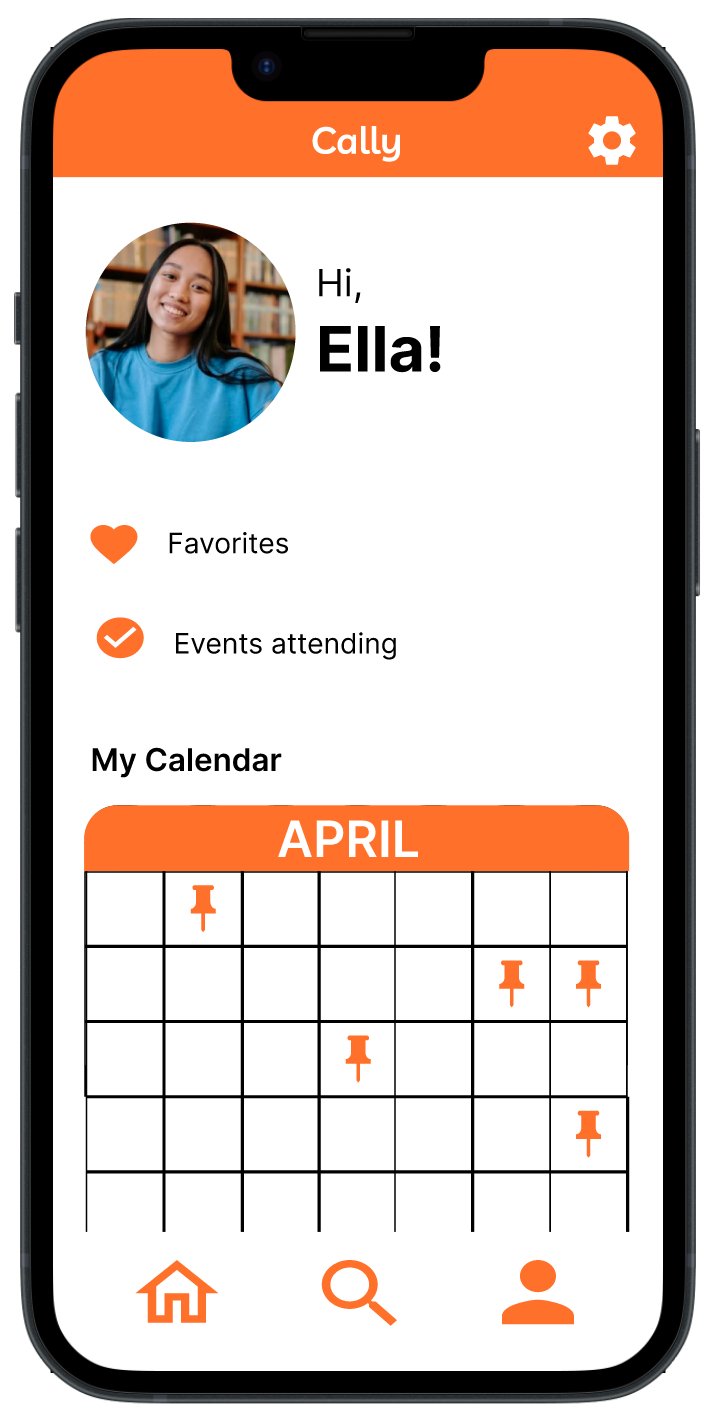
Key takeaways
- Learning Figma - This project was my first time using Figma to create a prototype, and I am proud of the final outcome. Though using Figma was not a requirement for this class project, I chose to challenge myself by employing it, recognizing its prevalence in the industry. I learned how to navigate Figma’s features and apply design theories effectively. This experience allowed me to gain hands-on knowledge and proficiency with the platform.
- Complex Designs and Theories - In the future, I aim to leverage Figma to create more complex designs. This project provided valuable insights into different design theories and elements, including Google Material Design, enhancing my overall design skills.
View other projects here: